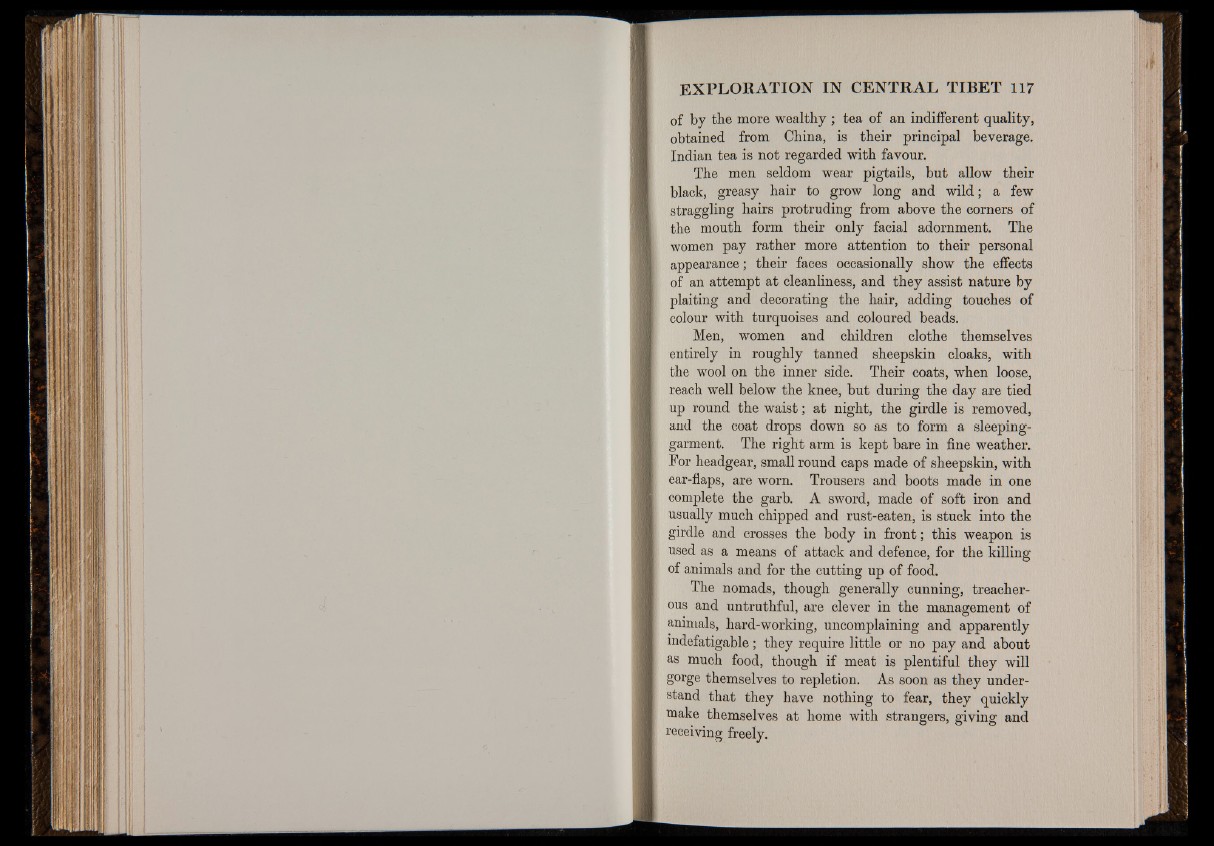
of by the more wealthy ; tea of an indifferent quality,
obtained from China, is their principal beverage.
Indian tea is not regarded with favour.
The men seldom wear pigtails, but allow their
black, greasy hair to grow long and wild; a few
straggling hairs protruding from above the corners of
the mouth form their only facial adornment. The
women pay rather more attention to their personal
appearance; their faces occasionally show the effects
of an attempt at cleanliness, and they assist nature by
plaiting and decorating the hair, adding touches of
colour with turquoises and coloured beads.
Men, women and children clothe themselves
entirely in roughly tanned sheepskin cloaks, with
the wool on the inner side. Their coats, when loose,
reach well below the knee, but during the day are tied
up round the waist; at night, the girdle is removed,
and the coat drops down so as to form a sleeping-
garment. The right arm is kept bare in fine weather.
For headgear, small round caps made of sheepskin, with
ear-flaps, are worn. Trousers and boots made in one
complete the garb. A sword, made of soft iron and
usually much chipped and rust-eaten, is stuck into the
girdle and crosses the body in front; this weapon is
used as a means of attack and defence, for the killing
of animals and for the cutting up of food.
The nomads, though generally cunning, treacherous
and untruthful, are clever in the management of
animals, hard-working, uncomplaining and apparently
indefatigable; they require little or no pay and about
as much food, though if meat is plentiful they will
gorge themselves to repletion. As soon as they understand
that they have nothing to fear, they quickly
make themselves at home with strangers, giving and • O 7 O O receiving freely.